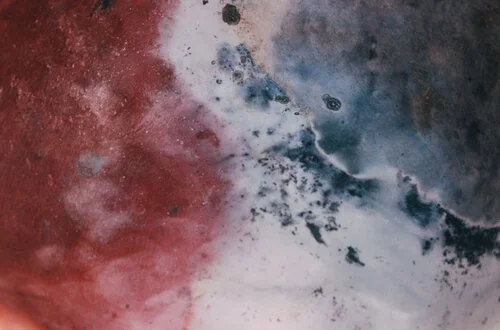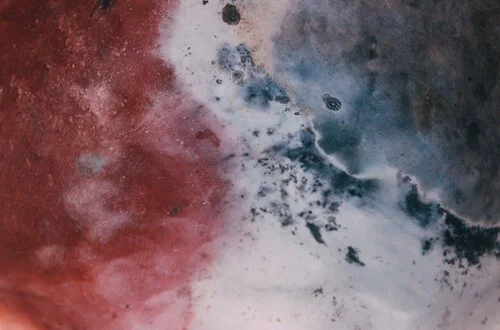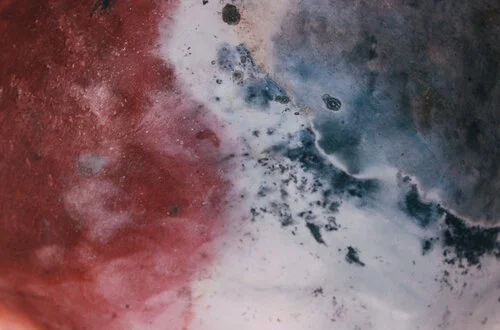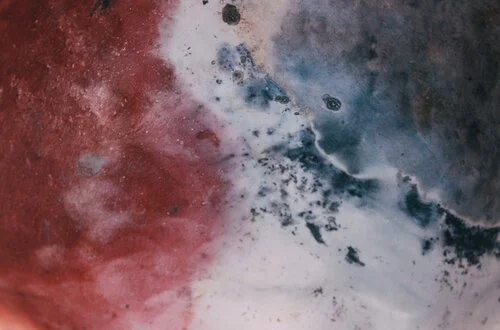
Storytelling
After a prolonged experience of anti-Muslim bigotry, Alison Kysia, a potter and multimedia artist, created a series of 99 pinch pots that represent the 99 names of God in Islam, known as asma al-husna (The Beautiful Names). Each of the 99 pots has its own shape, size, and fire marks, each one unique while also part of the whole. The pots represent the primordial power of tawhid, the Islamic principle of the diversity of all encapsulated in the One. It is precisely this principle, the drawing together of our diverse identities in fellowship, that is the opposite of bigotry and discrimination.
99 Clay Vessels: The Muslim Women Storytelling Project uses each of the 99 clay pots as a visual vessel to hold 99 unique stories from Muslim women about experiences of bigotry they have endured and transformed to nourish the work they do now.
Format of the workshops
Each Muslim woman in this project will participate in a small group story sharing workshop (five Zoom meetings, each two hours long, spaced out over three consecutive days, plus individual work time). The storytelling workshops are facilitated by Sabrina N’Diaye, a Muslim woman psychotherapist and healer, who will support mental and emotional health while integrating Muslim practices of healing. Participants will create a digital story of her choice, which can include creative writing, poetry, visual art, audio, and video recordings, which will then be uploaded to the project website. The workshop will build community and solidarity, and is above all an opportunity for personal reflection, growth, and healing through the process of storytelling. While the stories will be shared as part of this project, the participants will retain the right to use their story in other professional or personal contexts.
-
As Muslims and women, many of us have been through traumatic experiences that we have not had the time or community space to reflect upon and process. The storytelling workshops offer an opportunity to reflect on these experiences out loud in a community of compassion. We work together to create new possibilities out of these experiences. In the sharing and releasing of these memories in community, we fuel the creation of a story, a definitive act of taking ownership over our own experiences and our representation. Ultimately, the storytelling workshops in this project are a celebration of Muslim women’s diverse self-expression, experiences, identities, and power.
-
The women all identify as social justice activists and advocates in different disciplines, connecting the personal and political struggle for justice. Importantly, not all the stories are outward facing, but include stories of intra-Muslim discrimination based on gender, sexuality, ethnicity, race, and class, discrimination which is intensified or reinforced in the context of Islamophobia. We make space in this project for women to share any experiences of bigotry, including bigotry perpetrated by other Muslims, to honor the reality that experiences of bigotry are not discrete and cannot be easily demarcated and categorized. Capturing complex and intersectional stories allows for a greater breadth and depth of understanding of Muslim women’s experiences. The participant list evolved organically from personal contacts, who then suggested friends and colleagues, and continuously grew from there. We are also working in collaboration with Muslim women-led nonprofits to offer workshops tailored to the communities they serve.
-
All forms of bias and discrimination are gendered and that includes Islamophobia, anti-Muslim bigotry and intra-Muslim bigotry. While there have been far more diverse representations of Muslim women in the last decade, there is still a lot of work to do to repair the damage of centuries of negative portrayals, miseducation, and pernicious stereotypes.
Gendered biases and discrimination take many different forms. Muslim women, especially those who are “visibly” Muslim in their clothing choices, face discrimination in schools, workplaces, and other institutions. They are easy targets for suspicion, exclusion, harassment and hate crimes and used as political pawns for U.S. imperial wars. Muslim women are represented as needing to be saved from Islam and Muslim men. Muslim women’s headscarves are represented as symbols of sexual control and sexual repression. LBGTQ Muslims are often made invisible by stereotypes of Muslim men as hypermasculine violent oppressors and Muslim women as lacking sexual agency. Muslim women are represented as binaries, the so-called “good” versus “bad” Muslim woman, both inside and outside Muslim communities, with the goal of pitting us against one another. The voices of first- and second-generation Muslims are often over-valued as speakers and authorities for Muslim communities, informed by and contributing to anti-Blackness.
The 99 Clay Vessels Project makes space for Muslim women to unload some of these burdens of identity and representation and tell whatever story they need to tell, whether it be outward facing, inward facing or both, in a community of compassion and acceptance. By removing expectations about the emotional labor of Muslim women to take care of others’ feelings about who they ought to be, we choose instead to create an inclusive vessel to hold the complex experiences of Muslim women activists and creatives who work daily to heal and transform the world. Far from needing to be saved, these women are working on the front lines of creating a society that values rights, inclusion, solidarity, and equity for all. Capturing complex and intersectional stories allow for greater breadth and depth in understanding Muslim women’s experiences, as defined by them.
-
As we mark twenty years post-9/11, this project adds to a historical record that has been shaped by the systematic exclusion of our perspectives in yearly commemorations and multimillion dollar memorials about that event. Twenty years on, we remain committed to truth-telling about all the impacts of the 9/11 era on multiple communities, impacts that reach far beyond what happened on that day. While 9/11 does not resonate with every single Muslim in the U.S. (because we are diverse), and even though Islamophobia and anti-Muslim bigotry is centuries old, it is an era in which we saw a dramatic intensification of the criminalization and dehumanization of Muslims in the U.S. and globally, fueled by U.S. imperialism. In solidarity with many other truth-telling projects about the 9/11 era, the 99 Clay Vessels Project archives the stories of Muslim women who defy broad generalizations about us, amplifying the work of Muslim women social justice activists and creatives and their role in transforming and healing the world.
-
Each component of the 99 Clay Vessels Project is a healing resource for participants and viewers alike. The 99 sculptural clay pots that Alison Kysia made were created as a therapeutic ritual and now serve as visual vessels to hold 99 Muslim women’s stories created through a healing workshop facilitated by Sabrina N’Diaye. Sasa Aakil and Jamiah Adams are creating an art video of the recitation of the 99 names of God, a healing ritual rooted in Islamic practice. Homayra Ziad is curating a collection of 99 Muslim-authored poems, both premodern and contemporary, that use clay, fire, and water as metaphors of spiritual transformation, reminding us of the endless possibilities of the creative impulse that lives in us and through us all.
Storytellers
Alison Kysia
Fatemeh Hosseini
Homayra Ziad
Kelly Izdihar Crosby
Linda Howard
Madinah Wilson-Anton
Maryam AbdulKareem
Rahmah Abdulaleem
Sabrina N'Diaye
Sasa Aakil
Shimul Chowdury
Tasleem Firdausee
April Arman
Aseelah Rashid
Darakshan Raja
Farah Shakour Bridges
Fatima Rafie
Hasnaa Mokhtar
Jalá Abdul-Jabbar
Maram Elnagheeb
Okolo Rashid
Teeb Al-Samarrai
Savannah Willis
Sarah Alfadl
Quran Shakir
Fatima Sadaf Saied
Maliha Shaikh
Jenny Suzdak
Mariam Azimi
Muslimah Najeeullah
Wendy Diaz
Ayanna Miranda
Rasha Anayah
Bayadir Mohamed-Osman
Tahira Hussain
Naimah Khalifa Bhuruku
Akilah Rabb
Hena Zuberi























